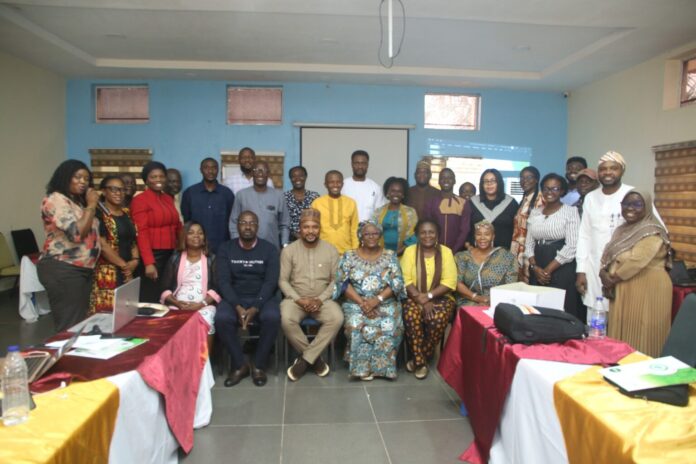The Federal Government has reported that over four million children in the Northeast and Northwest regions of Nigeria are suffering from malnutrition.
This alarming statistic was shared by Mrs. Ladidi Bako-Aiyebusi, Director of the Nutrition Department at the Federal Ministry of Health and Social Welfare, during a five-day meeting with nutrition experts and stakeholders in Keffi, Nasarawa State.
The meeting, organized in collaboration with Civil Society Scaling Up Nutrition in Nigeria (CS-SUNN) and other nutrition partners, is focused on developing a strategic advocacy policy for nutrition in Nigeria. The event, which began on Tuesday, is set to conclude on Saturday, with participants including nutrition experts, academics, and Civil Society Organizations (CSOs).
In her opening remarks, Bako-Aiyebusi emphasized the critical need for policy directions to guide integrated, results-focused advocacy on nutrition issues in the country. She highlighted Nigeria’s struggle with a “triple burden” of malnutrition, characterized by widespread macro and micronutrient deficiencies, undernutrition, and overnutrition, all of which have severe implications for health and socio-economic development.
“The 2021 National Food Consumption and Micronutrient Survey report reveals that nearly 4.4 million children in the Northeast and Northwest are malnourished,” Bako-Aiyebusi stated. She identified several causes of malnutrition, including inadequate access to food, poor dietary practices, improper feeding and care, economic and political challenges, low economic status, inadequate health-seeking behaviors, and low levels of education.
She further explained that globally, evidence-based advocacy has been recognized as a powerful tool for promoting the interests of individuals or issues, particularly in the field of nutrition.

“This is why the Nutrition Department of the Federal Ministry of Health and Social Welfare, in collaboration with relevant stakeholders, is hosting this five-day meeting. The aim is to develop a strategic document that outlines effective ways to drive nutrition advocacy in Nigeria, with a focus on Multiple Micronutrient Supplementation (MMS) and other nutrition components throughout the life cycle, ensuring no one is left behind,” she added.
Mr. Kunle Ishola, Programme Officer at CS-SUNN, praised the ministry’s initiative and stressed the importance of following specific steps for effective advocacy. He noted that CS-SUNN’s technical and financial support for the meeting aims to help participants develop a robust nutrition advocacy document that can shift the narrative in Nigeria.
“If the right path is not followed, results cannot be expected. After years of pushing for nutrition issues, we recognized the need to establish a clear direction for nutrition advocacy in the country. This meeting is focused on identifying the key elements that make advocacy on nutrition issues effective,” Ishola said.
Mr. William Anyebe, another participant, noted that while significant nutrition advocacy efforts are underway, there has been no guiding document. This meeting aims to create a comprehensive guide for conducting nutrition advocacy in Nigeria moving forward.
“Given that malnutrition is a significant issue in Nigeria, it’s crucial to develop a clear document that ensures all those involved in nutrition advocacy are properly guided,” Anyebe stated.
Prof. Salisu Abubakar, Vice Chairman of the National Nutrition Technical Working Group, added that the strategy document would offer guidance on how to best integrate and collaborate on advocacy efforts for improved funding and service delivery.
It will also address new approaches to tackling undernutrition in rural areas and overnutrition in urban areas.




